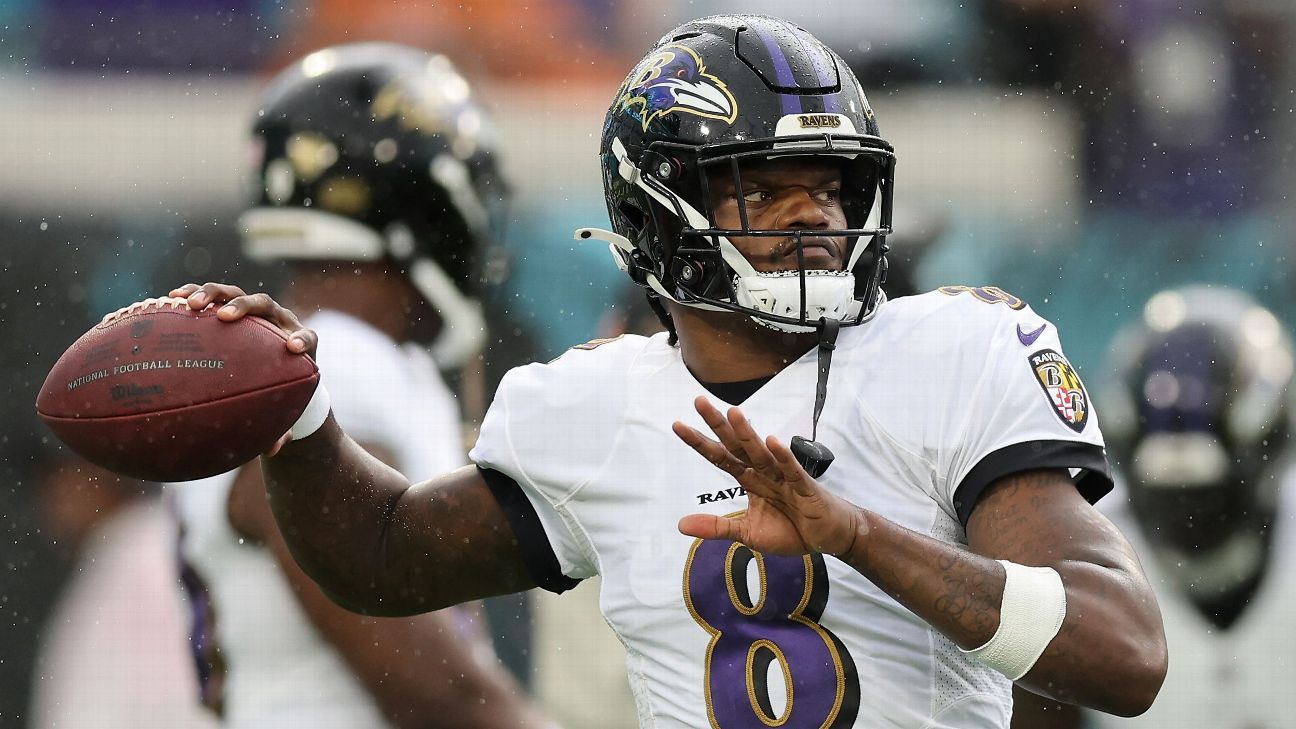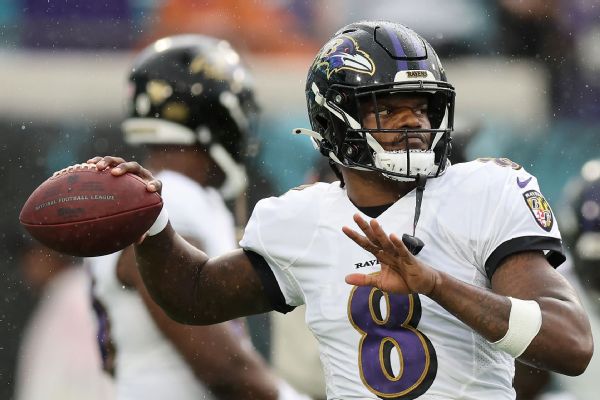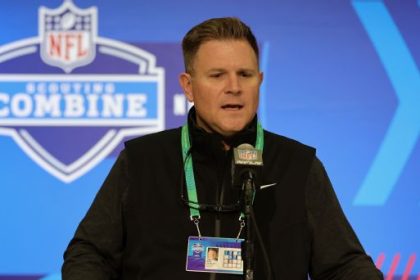

At the end of the season, Baltimore Ravens general manager Eric DeCosta said “it takes two to tango” when asked about the chances of getting a deal done with quarterback Lamar Jackson this year.
Ravens defensive end Calais Campbell said this week that Jackson is a willing dance partner.
Campbell, who is also the NFLPA vice president, told the NFL Network on Thursday: “He wants to get a deal done, and that’s the most important part. Sometimes guys who are part of a team and don’t want to be there anymore use [free agency] as an opportunity to go elsewhere. But he wants to be [with the Ravens].”
Jackson hasn’t spoken about his contract since the start of the 2022 season, and he hasn’t spoken to reporters since he suffered a season-ending knee injury in early December.
Negotiations between Jackson and the Ravens began 25 months ago, and there’s no sign that the sides are close to a deal. Baltimore would have to place the franchise tag on Jackson by Tuesday at 4 p.m. ET to keep him from becoming an unrestricted free agent.
DeCosta said at the NFL combine Wednesday that no decision has been made on which tag Baltimore would apply. If the Ravens use the non-exclusive tag, Jackson would be allowed to hold contract talks with other teams. Baltimore would have the right to match any offer sheet or receive two first-round picks as compensation. The exclusive tag would allow the Ravens to control his rights as well as any trade talks.
DeCosta said he met with Jackson recently and that it’s “an ongoing discussion.” He acknowledged that this negotiation is tougher than others because Jackson doesn’t have an agent and is representing himself.
“Lamar’s throwing ideas to me [and] I’m throwing ideas to him,” DeCosta said. “We have to appreciate the position of the other person, we have to respect the other person’s position and where they’re coming from and we have to be willing to consider that this might be really important to them. And if it is, what are we willing to give up, basically, in exchange for something that’s really important to you? So it’s a negotiation, but it has to be a good faith negotiation based on trust, respect and listening to the other person. Otherwise, it won’t work.”












